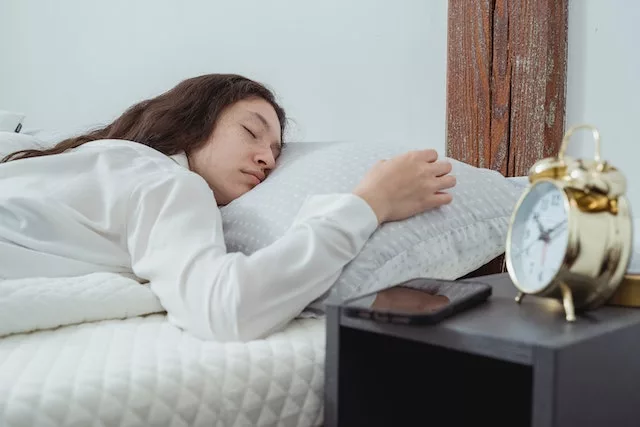Exploring the Relationship Between Intermittent Fasting and Sleep Quality
Intermittent fasting has gained popularity as an eating pattern that involves cycling between periods of fasting and eating. While intermittent fasting offers various health benefits, including weight management and improved metabolic health, its impact on sleep quality has become a topic of interest. In this article, we will delve into the relationship between intermittent fasting and sleep and explore how this eating pattern may affect sleep quality.
Potential Effects of Intermittent Fasting on Sleep
a. Circadian Rhythm: Intermittent fasting may influence the body’s internal clock, known as the circadian rhythm. The circadian rhythm helps regulate sleep-wake cycles, and disruptions to this rhythm can impact sleep quality. Some studies suggest that intermittent fasting can help align the circadian rhythm, potentially leading to improved sleep patterns.
b. Hormonal Changes: Intermittent fasting can induce hormonal changes in the body, affecting sleep-related hormones. For example, fasting can alter levels of ghrelin (hunger hormone), leptin (satiety hormone), and cortisol (stress hormone), which may have implications for sleep. However, more research is needed to fully understand the hormonal effects of intermittent fasting on sleep.
c. Nighttime Eating and Digestion: Depending on the specific fasting protocol, intermittent fasting may involve restricting eating to certain hours of the day, including skipping dinner or consuming meals earlier. Consuming meals closer to bedtime or having an empty stomach before sleep can affect digestion and potentially disrupt sleep quality for some individuals.
Individual Variations
It’s important to note that the effects of intermittent fasting on sleep can vary among individuals. Some people report improved sleep quality and more restorative sleep when practicing intermittent fasting, while others may experience disruptions initially. Factors such as individual metabolism, lifestyle, and existing sleep patterns can influence how intermittent fasting impacts sleep.
Tips for Combining Intermittent Fasting and Sleep:
- Experiment with Timing: Find an intermittent fasting schedule that works best for your sleep routine. Consider avoiding eating close to bedtime to allow for better digestion before sleep, but also ensure you have enough energy throughout the fasting period to support quality sleep.
- Prioritize Sleep Hygiene: Establish a consistent sleep schedule, create a sleep-friendly environment (dark, cool, and quiet), and practice relaxation techniques before bed to promote optimal sleep quality.
- Monitor Your Body’s Response: Pay attention to your body’s signals and adjust your fasting schedule if it negatively affects your sleep. Some individuals may need to modify the fasting window or experiment with different fasting protocols to find a balance that supports both their fasting goals and sleep quality.
- Combine with a Balanced Diet: Ensure that during your eating periods, you consume a well-balanced diet that provides adequate nutrients to support overall health and sleep quality.
If you have concerns about how intermittent fasting may be affecting your sleep or if you have underlying health conditions, it is advisable to consult with a healthcare professional. They can provide personalized guidance based on your specific needs and help monitor any potential impacts on sleep health.
While intermittent fasting can offer various health benefits, its effects on sleep quality can vary among individuals. Some may experience improvements in sleep patterns, while others may face initial disruptions. Finding the right balance by considering individual responses, prioritizing sleep hygiene, and adjusting fasting schedules as needed can help ensure that intermittent fasting is compatible with healthy sleep patterns.
Image by congerdesign from Pixabay
Sleep
-

How to Snack at Night to Sleep Well?
Snacking is a common part of modern eating habits, often providing a source of comfort and satisfaction. However, the timing and content of these snacks can have significant effects on various aspects of health, including sleep. In this article, we will explore the relationship between late-night snacking and sleep, highlighting the potential impacts on sleep…
-

What is a Sleep Log and why you need one: Unlocking the Secrets to Better Rest and Overall Health
-

Exploring the Relationship Between Intermittent Fasting and Sleep Quality
-

The Role of Hormones in Sleep and Natural Ways to Improve Hormone Health for Better Sleep
-

The Powerful Diet and Sleep Connection: Understanding the Impact
-

How to master the Art of Power Naps: A Guide to Healthy and Effective Power Naps
-

7 Essential Oils in Aromatherapy to Promote Sleep








Leave a Reply